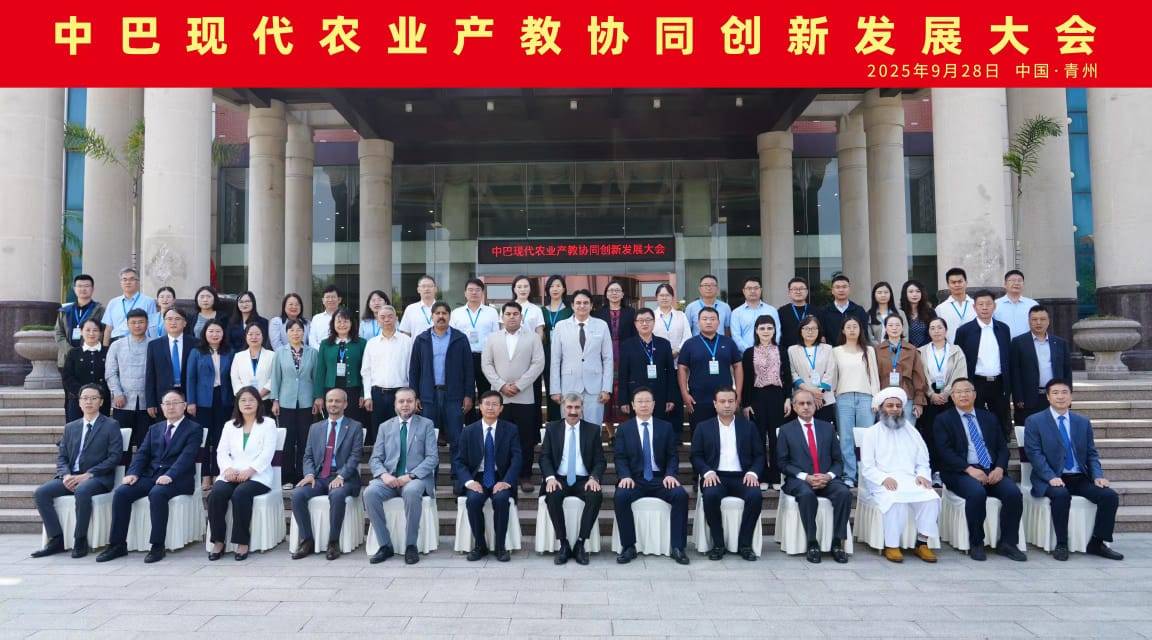A high-level conference between China and Pakistan has concluded with a renewed commitment to strengthen collaboration in modern agriculture and education, marking a major expansion of the China-Pakistan Economic Corridor (CPEC) beyond infrastructure to human capital and innovation.
The China-Pakistan Conference on Collaborative Innovation in Modern Agriculture and Industry-Education Integration, held in Qingzhou, brought together senior government officials, academic leaders, and private sector representatives from both nations. The week-long summit served as a platform to finalize strategies for developing a skilled workforce, modernizing technical education, and accelerating technology transfer.
During the sessions, the Pakistani delegation underscored the urgent need to modernize the agricultural and technical education sectors to enhance productivity and innovation. Chinese counterparts offered expertise in digital agriculture, smart farming, and vocational training alignment to bridge the skills gap.
Nadir Chattha, Secretary of Skills Development for the Government of Punjab, highlighted the importance of aligning vocational courses with international standards and Chinese industry needs. He emphasized that this alignment would open new avenues for high-value employment for Pakistan’s youth.
Prof Dr Muhammad Kamran, Vice Chancellor of the Islamia University of Bahawalpur (IUB), called for joint degree programs, dual certifications, and international accreditation to strengthen graduate competencies across Pakistan’s diverse regions.
The private sector also played a pivotal role in the discussions. UNI International pledged to develop industry-relevant vocational programs to ensure job-ready graduates, while ITMC Technology announced plans to provide digital infrastructure and precision agriculture software, supporting Pakistan’s transition toward “Smart Agriculture.”
The conference concluded with the signing of multiple Memoranda of Understanding (MoUs), setting the stage for joint innovation centers, faculty development programs, and student exchanges to begin in the coming year.
Related: Pak-China TVET Cooperation Set to Power Industrial Growth
The landmark summit represents a strategic evolution of CPEC, expanding its focus from physical infrastructure to knowledge exchange, workforce development, and technological transformation — paving the way for a new era of China-Pakistan collaboration.



